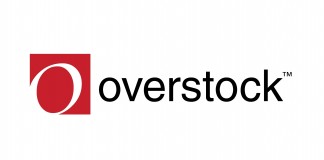In another interview from our Chain-Finance event series, we feature George Hallam of the Ethereum Foundation.
How would you describe your blockchain technology?
Ethereum is a decentralized platform that runs smart contracts: computer protocols that run exactly as programmed without any possibility of downtime, censorship, fraud or third party interference. They can be used to facilitate, verify, or enforce the negotiation or performance of real world contracts, or can even obviate the need for a contractual clause entirely.
More than that, as a platform, the Ethereum public network provides a set of integral features which are very useful to the finance industry:
- User authentication, via seamless integration of cryptographic signatures
- Fully customisable business logic; it’s easy to create t0 payment systems without any reliance on third parties
- 100% ddos resistant up-time, guaranteed by being a fully decentralized blockchain-based platform.
- Ultimate interoperability: everything in the Ethereum ecosystem can trivially interact with everything else, from reputation to custom currencies, debt instruments to voting mechanisms
- Server free zone: your whole application can be deployed on the blockchain meaning no need for setting up or maintaining servers
Is your technology currently being used for bonds or other credit-based instruments (including derivatives)?
Though Ethereum has only been a live network for 6 months, there are already several interesting examples of it being used for credit-based instruments such as bonds and OTC derivatives.
If so, can you provide a few more details?
Two examples would be:
UBS’s endeavour to build a smart bond experiment (which has now been donated to help fund HIV research through the creation of “Vaccine Bonds”) and HitFin, a Swiss based bilateral trading and settlement platform for over-the-counter derivatives.
What is the advantage of using your technology rather than creating a bond in a more traditional form?
Currently, within the credit market space, there are layers upon layers intermediaries; trusted third parties, counterparties, central security deposits, custodian banks etc. Ethereum presents an opportunity to disintermediate these parties entirely. This could allow (for example) an issuer of bonds in many instances to interact immediately (t0) and safely with a buyer entirely with software, removing the need for these intermediaries and significantly cutting costs and bureaucratic overhead all the while offering similar benefits currently enjoyed by trading with a traditional central clearing counterparty.
Can you compare how your system might be an improvement on the technology that already exists in debt markets?
Many recent attempts have been made to improve bond markets with little success. For example, corporate bond trading platforms often fragmented and have prohibitive geographical location requirements, onboarding processes and trading fees. With Ethereum based markets and instruments, there is a huge potential to significantly lower trading costs (due to the way traders exchange in a “peer to peer” manner), increase interoperability between markets and allow for almost instant on boarding. With derivative markets especially, Ethereum also makes the creation of a new product incredibly simple with the use of trustless oracles.
What challenges do you think a financial services partner might face adopting your technology to issue or manage credit instruments and how can they address those challenges?
As a technology, Ethereum it is still very nascent. As with any nascent technology, there are a host of legal and technical questions yet to be answered. There is, however, a very large, active and growing ecosystem that is effectively exploring all of those questions whilst creating new precedents and solutions to address them.
Please provide details about your team and how people can contact you.
Ethereum is a team of world class developers and communicators distributed around the world. To get in contact, please email [email protected]





